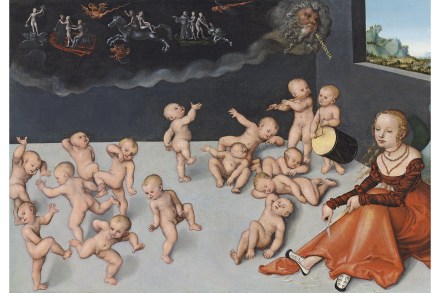Courage and humour in the face of unimaginable grief
In the face of unendurable pain that must be endured and unimaginable loss that must be imagined, jokes should not be resisted or turned away. Miriam Toews, describing the day that her father ended his life, remembers him assessing the outfit – torn jeans and a green hoodie – that she had been wearing for a fortnight. ‘Did you have much trouble deciding what to wear?’ he asked as he left his ham sandwich uneaten at a family lunch. Afterwards, he made his way to the railway tracks. A dozen years later, Miriam’s older sister Marjorie died by suicide in the same manner the day before her 52nd birthday. Toews






